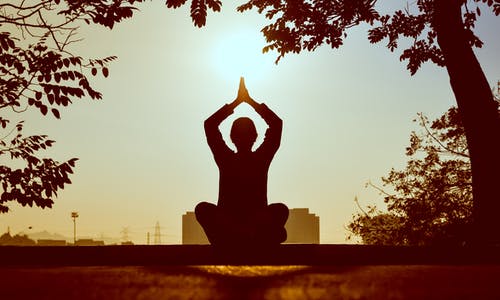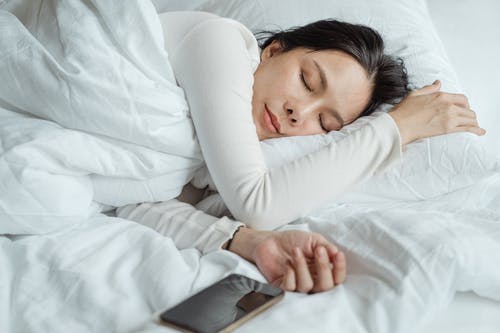The terms ‘mindfulness’ and ‘meditation’ are often used interchangeably and have become somewhat ‘buzz words’ in the last few years. They are becoming increasingly recognised for their benefits within the field of mental health and are very popular due to their simplicity and accessibility. Anyone can practice mindfulness and meditation with no special equipment, training or guidance required but it’s always good to arm yourself with a few pointers when trying out a new skill and so if you’re interested in giving them a go or finding out what they can do for you, read on…
Mindfulness may be thought of as a way of being present and fully immersed in the present moment and is more of a category word, whilst meditation is one way of achieving the state of mindfulness. Meditation involves being mindful/in the moment but is just one method of doing so. Mindfulness may therefore be thought of as ‘category’ word such as car or fruit, with meditation being one specific example, such as Mercedes or banana (we love a random analogy!) As mindfulness has so many benefits it’s important to find the right practice for you and to be aware of different ways of practicing to suit different moods and times in our lives.
Many people turn away at the thought of meditation as they wrongly believe it’s a practice linked to certain religions. Whilst most religions do have an element of prayer and meditation to them, you don’t have to be at all religious to meditate. It’s about tuning into your own body, mind and environment in each present moment, exactly as you are experiencing life at that time and thus is personal to everybody and can be done by anyone. Another misconception is that to practice mindfulness you have to go on a spiritual journey and spend time sitting cross-legged and chanting on the side of a mountain (or something equally as extreme) and this is also definitely not the case.

Benefits of mindfulness
As mindfulness and meditation have gained in popularity, there has been much research dedicated to their benefits and effects in various fields. Supported effects of mindfulness include:
- decreased stress and anxiety
- improved relationships, compassion and empathy with others
- improved concentration and mental clarity
- increased emotional regulation and decreased reactivity
- reduced pain
- reduced blood pressure
- enhanced sleep quality and duration
- increased productivity
My personal experience
On a personal note, I was first introduced to the concept of mindfulness by a psychologist when I was in my early 20s. In my teenage years and onwards I was treated for anorexia and had several rounds of intense Cognitive Behavioural Therapy and counselling. Years after finishing treatment and physically having fully ‘recovered’, I was still struggling with lots of negative thoughts about my eating and body image. Following another round of CBT I revealed to my therapist that even though I was no longer acting out the behaviours I had when I had an eating disorder, I was still constantly battling my thoughts of what I ‘should’ and ‘shouldn’t’ be eating, doing, thinking and so on. Constantly arguing with myself in my head took up a huge amount of my energy and left me feeling hopeless and down. If I was fully ‘recovered’, why was I still having negative thoughts and still battling the voice urging me to go back to old habits? My therapist suggested I looked into mindfulness as a method of learning to accept thoughts as opposed to fight them. Eager to try anything after almost 10 years of struggling with eating disorder related mental health issues, I bought some books and signed up to a course in Mindfulness Based Stress Relief. At the start of the course, I remember being told not to expect any particular outcome but simply to complete the practices and to observe any effects.

I can honestly say that the course changed my life. Did it finally teach me how to make all my thoughts positive? No, of course not, but it helped me to learn that I was not my thoughts and didn’t have to believe them all. I could observe them and choose whether to act on them or let them go. After years of feeling I should either believe or fight every single negative or ‘bad’ thought that came up, it was an absolute revelation that I could CHOOSE to acknowledge the thought and observe it without judgement, criticising myself or endlessly battling to eradicate these thoughts altogether. Mindfulness taught me to stop putting off true happiness and contentment until everything felt positive in my mind, as this state of perfection never ever happens. We ALL have negative thoughts, self-doubts, insecurities, anxieties and so on (albeit some more often than others) to varying degrees throughout our lives. These thoughts and feelings are often strongly influenced by external events over which we have no control. This is something that every single one of us has in common, but what we also have in common is that our power lies in how we REACT to our thoughts and feelings. We can choose to let them run our lives and dictate our levels of happiness and satisfaction OR we can choose to pause and observe our busy minds and refuse to engage in arguments with any thoughts that want to cause us trouble.
In this way, mindfulness has helped to reduce my anxiety levels as I can always find something to worry about but doing so rarely changes the outcome. I can choose to accept that worry is a natural emotion that aims to keep us safe but that I do not have to believe every single anxiety and eventuality that my mind conjures up. I can focus on thoughts that help me to be proactive in helping myself feel calm and relaxed instead. In terms of the lingering eating and body image related thoughts, with practice I found that I could simply allow them to be there but not let them dictate my actions. I may worry about not knowing the nutritional content of a meal when I ate out, but I could still go to the meal and eat whatever I wanted. This felt almost too simplistic to have any effect but over time, the more I chose to act in spite of negative or limiting thoughts, the less frequent and invasive the thoughts became. It really does show the truth in the saying that what you resist, persists. By simply allowing and not reacting to thoughts and feelings they lose so much of their power over our mood and life.

Personally, I have found mindfulness and meditation practice to relax me as it often encourages slower breathing and a reduced heart rate in the body which invokes a relaxation response. It has massively helped me with sleep issues as I have also been prone to lay in bed battling thoughts and getting into arguments with myself in my mind and feeling overwhelmed. I’ve also found that it has boosted my memory as I’m more present in everyday moments that I often wouldn’t pay attention to otherwise such as random conversations whilst doing another task and driving journeys that I know well and can do on autopilot.
The benefits of mindfulness and meditation detailed in this blog are just meant as an introduction and from my personal account you can hopefully see that this is something I truly believe in. Just like any skill or habit though, it takes regular practice to maintain results. Just like you can’t go to the gym once and stay fit and healthy for life, you shouldn’t be disheartened if just dabbling in mindfulness practices doesn’t have any immediate profound effects. Commit yourself to making it a regular part of your daily routine and taking even just a few minutes a day to invest in your mental and physical health and wellbeing. Below are a few ideas to get you started or you can find many free guided meditations online or on popular apps. I am publishing this blog after failing to meditate for the last 7 days straight and I have honestly convinced myself to get back to it! Let me know if you join me ?

Mindful Walking – Whilst out for a walk, turn off technology and tune into what’s going on around you. Use all 5 senses to observe whatever is happening in the exact moment. Try to notice 5 things you can see, 4 you can hear, 3 you can feel/touch, 2 you can smell and 1 thing you can taste (even if it’s fresh air!) This makes sure we are fully anchored in the present moment as opposed to rushing around mindlessly or engrossed in distractions such as mobile phones or music.
Mindful Breathing – This can be done anywhere, at any time and is great for relaxation and anxiety/stress relief. Simply sit or stand with eyes open or closed (if it’s safe to do so!) and inhale naturally. As you exhale, count the number ‘one’ to yourself in you mind. Repeat this and count ‘two’. Continue all the way up to 10. If your mind becomes distracted, as soon as you notice this simply return your awareness to your breath and begin counting again from one. If your mind is wandering frequently, especially as you first practice, you may want to start with a smaller number such as 5 or you may wish to start from the number your thoughts drifted off at rather than going back to 1.
Visualisation Meditation – Using all 5 senses as in the previous exercise, build a picture in your mind of a special place. This can be anywhere you would like to be at this time, for example a relaxing beach, a party with friends or walking in nature. This helps us to create a sense of attention to detail in the present moment and can result in us feeling comforted, loved, relaxed or whatever else we need at the time. For more guidance with visualisation see my previous blog on this topic.
Mantra Meditation – Once you have tuned in to your breathing, choose a mantra (this can be a word, sound or phrase) that you will repeat to yourself on each out breath. You can do this silently or aloud and can choose a sound such as a hum to provide a calming vibration or a word such as ‘love’ or ‘confidence’ or anything else you desire. You could also try an affirmation such as ‘I am calm’ ‘I believe in myself’ or ‘I am loved’. You may wish to set a timer for this one so you can focus fully on the mantra. Again, if your mind wanders as it inevitably will, start again with the mantra whenever you notice.
As always, thank you for reading and do get in touch with any questions, comments or feedback. I’d love to hear your own experiences of mindfulness and meditation.
Bev Meakin – Personal Trainer, Exercise Referral Officer and Complementary Therapist. Instagram @bevs_life

